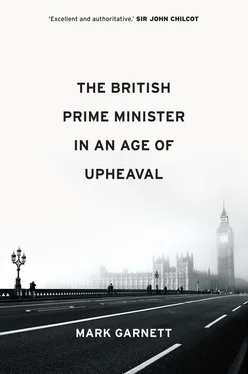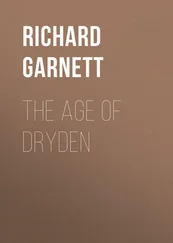179 173
180 174
181 175
182 176
183 177
184 178
185 179
186 180
187 181
188 182
189 183
190 184
191 185
192 186
193 187
194 188
195 189
196 190
197 191
198 192
199 193
200 194
201 195
202 196
203 197
204 198
205 199
206 200
207 201
208 202
209 203
210 204
211 205
212 206
213 207
214 208
215 209
216 210
217 211
218 212
219 213
220 214
221 215
222 216
223 217
224 218
225 219
226 220
227 221
228 222
229 223
230 224
231 225
232 226
233 227
234 228
235 229
236 230
237 231
238 232
239 233
240 234
241 235
242 236
243 237
244 238
245 239
246 240
247 241
248 242
249 243
250 244
251 245
252 246
253 247
254 248
255 249
256 250
257 251
258 256
259 257
260 258
261 259
262 260
263 261
264 262
265 263
266 264
267 265
268 266
269 267
270 268
271 269
272 270
‘Approachably written, wide-ranging, and both historically aware and bang up to date, Mark Garnett’s book helps explain why what has become an almost impossible job – one that offers presidentialstyle prominence but far less real power than many of us imagine – increasingly seems to attract such improbable politicians. A great read for anyone interested in the past, present and future of British politics.’
Tim Bale, Queen Mary University of London
‘In this excellent and authoritative book, Mark Garnett offers invaluable insights into the troubled waters where politics and government merge in the role of Prime Minister.’
Sir John Chilcot
‘This is a timely attempt at helping us to better understand the role of the British Prime Minister and the challenges of providing effective political leadership. Mark Garnett has developed a thematic study which provides us with a range of new insights: a must-read for students and scholars with an interest in UK politics.’
Timothy Heppell, University of Leeds
‘A subtle and sophisticated contribution to the debate on the role of the Prime Minister, which also succeeds in being delightfully readable.’
David Lipsey, Labour Peer
‘A fresh, timely and original volume on the Prime Minister from one of our leading authorities on post-war British history.’
Anthony Seldon, author and educator
In loving memory of Joan Elizabeth ‘Betty’ Garnett
The British Prime Minister in an Age of Upheaval
Mark Garnett
polity
Copyright © Mark Garnett 2021
The right of Mark Garnett to be identified as Author of this Work has been asserted in accordance with the UK Copyright, Designs and Patents Act 1988.
First published in 2021 by Polity Press
Polity Press
65 Bridge Street
Cambridge CB2 1UR, UK
Polity Press
101 Station Landing
Suite 300
Medford, MA 02155, USA
All rights reserved. Except for the quotation of short passages for the purpose of criticism and review, no part of this publication may be reproduced, stored in a retrieval system or transmitted, in any form or by any means, electronic, mechanical, photocopying, recording or otherwise, without the prior permission of the publisher.
ISBN-13: 978-1-5095-3937-6
A catalogue record for this book is available from the British Library.
Library of Congress Cataloging-in-Publication Data
Names: Garnett, Mark, 1963- author.
Title: The British prime minister in an age of upheaval / Mark Garnett.
Description: Medford : Polity Press, 2021. | Includes bibliographical references and index. | Summary: “A timely re-assessment of the role of the British Prime Minister from Thatcher to Johnson”-- Provided by publisher.
Identifiers: LCCN 2020038351 (print) | LCCN 2020038352 (ebook) | ISBN 9781509539352 (Hardback) | ISBN 9781509539369 (Paperback) | ISBN 9781509539376 (ePub)
Subjects: LCSH: Prime ministers--Great Britain. | Prime ministers--Great Britain--History. | Great Britain--Politics and government.
Classification: LCC JN405 .G37 2021 (print) | LCC JN405 (ebook) | DDC 941.086--dc23
LC record available at https://lccn.loc.gov/2020038351LC ebook record available at https://lccn.loc.gov/2020038352
The publisher has used its best endeavours to ensure that the URLs for external websites referred to in this book are correct and active at the time of going to press. However, the publisher has no responsibility for the websites and can make no guarantee that a site will remain live or that the content is or will remain appropriate.
Every effort has been made to trace all copyright holders, but if any have been overlooked the publisher will be pleased to include any necessary credits in any subsequent reprint or edition.
For further information on Polity, visit our website: politybooks.com
Preface and acknowledgements
Writing a book is always a memorable experience, and not always in a positive way. An author, perhaps, can be forgiven for recalling the progress of a project from the initial proposal to the submission of a manuscript – and long-suffering publishers might wish that they could forget it. But if any book includes more than a brief reference to the production process it is usually a sure sign that the writer is suffering from an over-inflated ego.
On this occasion, however, a few words about the pre-history of the book seem to be justified. It originated in an invigorating conversation with Louise Knight, beginning with reflections on the political situation of the time and ending with a blurred outline of this book. It was September 2018, when the position of the Prime Minister, Theresa May, had already been the subject of considerable speculation for more than a year. In my innocence, I thought that it might be an appropriate occasion to take stock of developments in the prime ministerial role since 1979. More than once in the intervening months, I have wondered if the old curse should be adapted: to my (probably self-interested) mind, ‘May you try to write a book about the Prime Minister in interesting times’ seems far more menacing than the original version. Although the research began in 2018, the actual composition of the book has taken place during the ‘lockdown’ induced by the coronavirus pandemic.
In September 2018 Mrs May had already been the central figure in the most momentous events in British politics since 1945; and since her departure from office in the following summer almost every news bulletin seems to have featured developments which would have deserved inclusion in a study of the prime ministerial role in ‘normal’ times. Rather than demanding a reconsideration of the whole project, it seemed (to the author, at least) that these happenings, properly understood, confirmed the line of argument in my formal proposal for this book, which was written at a time when the British government felt able to disregard contingency planning for the onset of a viral pandemic. In order to remain true to the original plan (and to stay within the word-limit), developments since May’s resignation are outlined in the concluding chapter.
Louise and her colleague Inès Boxman at Polity have exercised considerable patience while I waited (in vain) for a respite from events which were all too likely to have a significant impact on the argument of this book. I am very grateful to both of them; to my colleagues and friends at Lancaster University (especially David Denver and Richard Johnson); to Dick Leonard, who has written with such erudition and eloquence on every one of Britain’s Prime Ministers; and to the students who subjected themselves in 2019–20 to my module on this subject. I am particularly sorry that I took so long to finish the book, preventing me from forcing those students to buy it.
Читать дальше












